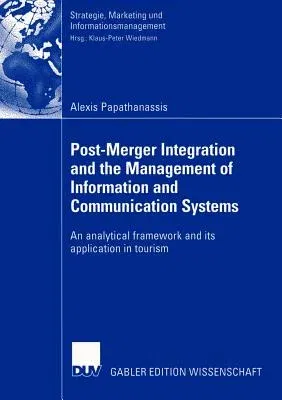Alexis Papathanassis
(Author)Post-Merger Integration and the Management of Information and Communication Systems: An Analytical Framework and Its Application in Tourism (SoftcoverPaperback - Softcover Reprint of the Original 1st 2004, 10 December 2004

Qty
1
Turbo
Ships in 2 - 3 days
In Stock
Free Delivery
Cash on Delivery
15 Days
Free Returns
Secure Checkout
Part of Series
Strategie, Marketing Und Informationsmanagement
Print Length
301 pages
Language
English
Publisher
Deutscher Universitatsverlag
Date Published
10 Dec 2004
ISBN-10
3824482452
ISBN-13
9783824482450
Description
Product Details
Author:
Book Edition:
Softcover Reprint of the Original 1st 2004
Book Format:
Paperback
Country of Origin:
US
Date Published:
10 December 2004
Dimensions:
21.01 x
14.81 x
1.7 cm
Genre:
British
ISBN-10:
3824482452
ISBN-13:
9783824482450
Language:
English
Location:
Wiesbaden
Pages:
301
Publisher:
Weight:
381.02 gm

